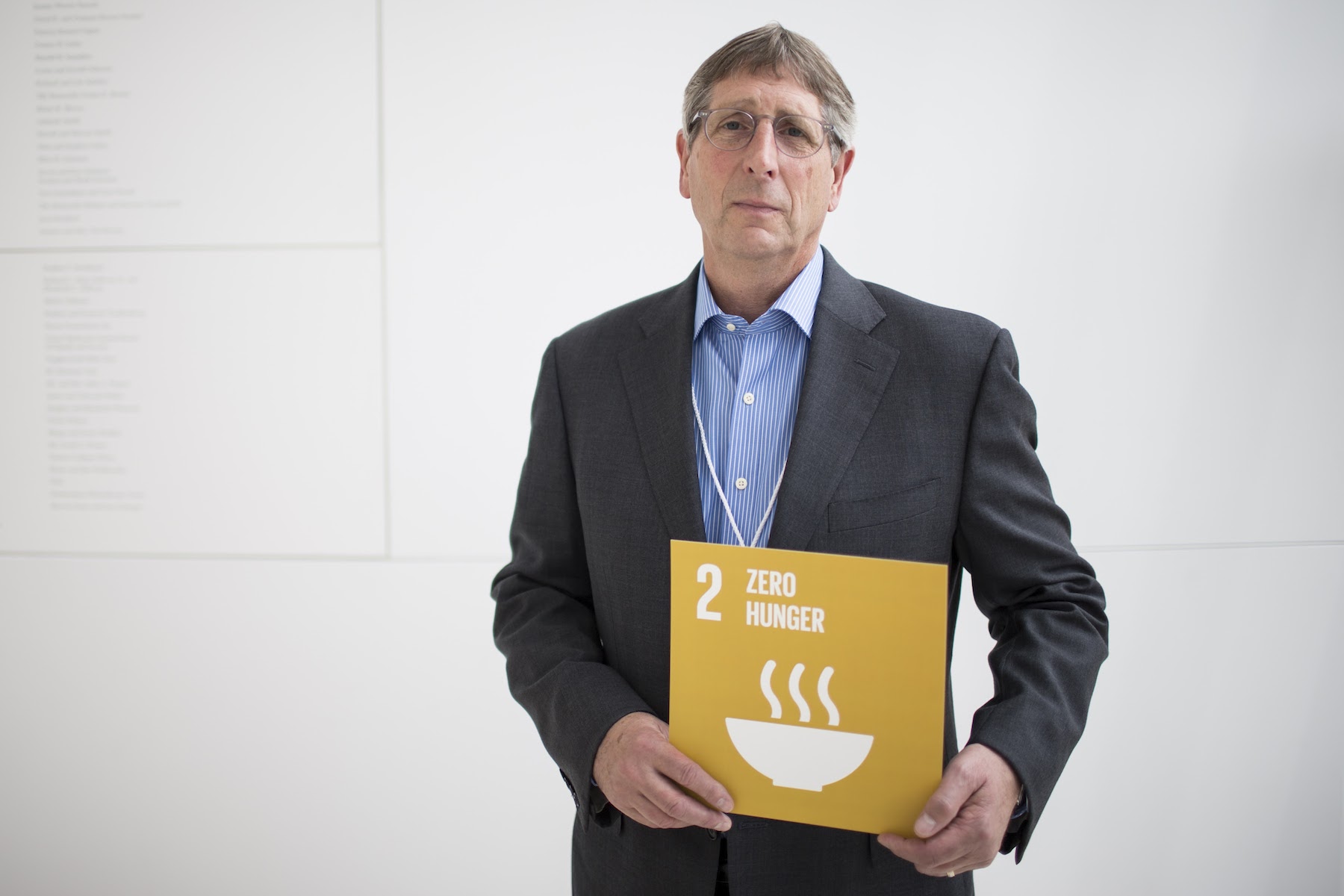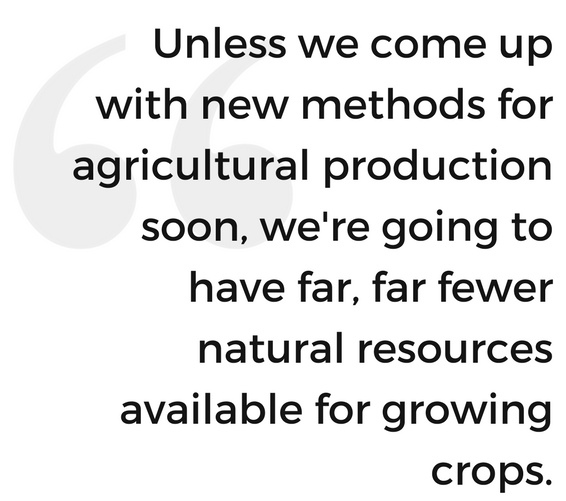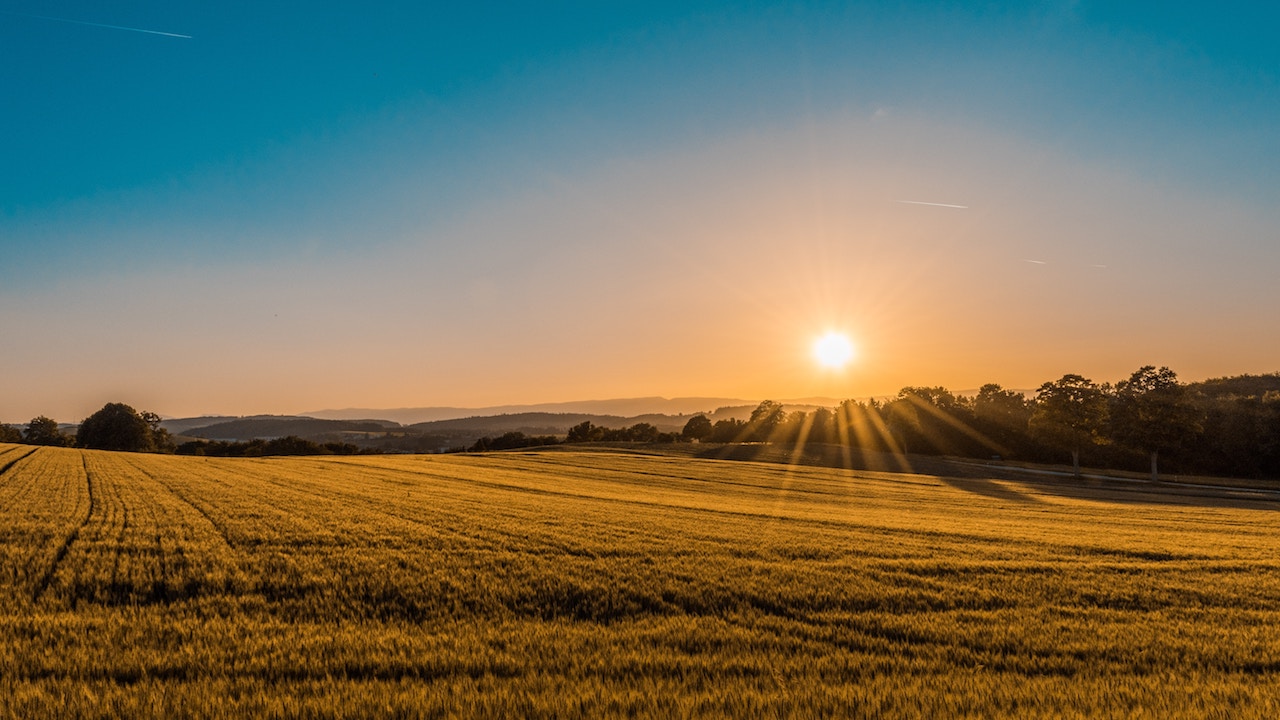Healthy soil is the critical foundation for any successful agricultural yield, yet mass monoculture practices, chemical pesticide and fertilizer use, and poor land management have resulted in the decimation of much of the planet’s farmable topsoils.
Without a more sustainable farming solution, current agriculture practices won’t be able to meet the intensifying demands of a growing global population. Agrinos aims to increase agricultural output while reducing harmful inputs by simply restoring microbial health to the soils farmers use. We spoke with Agrinos CEO Ry Wagner about the importance of farmer prosperity, food security, and giving back to future generations.

Photo courtesy of Chet Strange.
Read the full Q&A below:
What does Agrinos exist to do?
RW: Agrinos’ mission is to be a leader in the world of biological crop inputs that really help develop increased yield and resilience within the agricultural sector around the world. Our products are designed to improve crop yield, crop quality, product quality, while at the same time restoring a lot of the natural diversity that’s in the soil ecosystem and help rejuvenate and maintain a sustainable agricultural system.
What problem are you trying to address through your work?
RW: We hope to bring a new type of product to market in this industry: a product portfolio that is natural, that leads to sustainable, improved agricultural practices, and that improves grower income and benefit.
If I were to use the analogy to human metabolism and science, our products work more or less like a crop probiotic. In human medicine, we’ve really gone through a revolution in understanding the role of microorganisms, or probiotics, in our own human health and growth and development.

The very same thing is true in agriculture: plants and crops all require the same types of inputs that you have from the natural diversity of the ecosystem of microbes. We’re bringing those natural microbes back to the plants, and back to the soil. Natural bacteria help soils to utilize nutrients more efficiently, thereby providing better nutrition to the plant.
In most cropping systems, for example, the nitrogen that’s supplied to the soil — which is required for healthy plant and crop growth — is so inefficiently used by the plant that about half of it washes away into our watersheds. Having the microbes there that help utilize that nitrogen more effectively, make it more available for the plant, therefore increase the use of those nutrients and increase the growth of the plants.
Why is soil health important to you? Why have you chosen to orient your career around this cause?
RW: There’s a long answer to that! I’ve had a lot of different, really privileged roles in my career. I’ve been a university professor, I’ve trained people who would make me feel proud if they were writing me letters of recommendation as they’ve gone and developed their careers. I’ve worked in agriculture most of my life and it has become apparent to me that we need new solutions to improve our agricultural processes. At this point in my career, this is really the best way I can sustainably give back to the future generations, for my own kids, for the next generations to come.
What is it that gets you out of bed in the morning ready to work?
RW: What gets me excited each morning is the result that we hear back from our customers, from the growers, and the ideas that our team has in terms of how to develop even newer solutions and deploy those to our growers.
There’s probably hardly a morning that goes by where I don’t receive a photo of somebody’s results with our products in their field by text or by email. Seeing the results of what we do, the benefits of what we do, to the farmers, to the growers who use our products is extremely exciting.

Can you tell us about on of the farmers whose livelihood has been positively impacted by your products?
RW: There are a lot of excellent and really moving stories about how our products have helped farmers in various countries, but the one that sticks with me most is probably my first encounter with growers using our products as I just joined the company. This was with a sugarcane grower in Texas, and they met us at the sugar mill and they were looking fairly serious, so I was a little concerned that maybe we hadn’t delivered what they had expected. He came into the room with two plastic bags of soil and he put them down on the table. He said, “This is the soil not treated with your product. I can barely get my shovel into the soil to turn it. This is the soil treated with your product, and see how friable it is, how healthy it looks. How do you do this?”
That’s sort of experience I’ve had around the world with our growers: that they consistently see better yields, and that the improved soil quality offers them the ability to work their land that they put so much effort and love into.
If agricultural practices continue on their current trajectory — monoculture for mass market production, chemical pesticide use, decimating topsoils — where do you see us in five, ten years?
RW: Unless we come up with new methods for agricultural production soon, we’re going to have far, far fewer natural resources available for growing crops. That in turn is going to put more pressure on our own nutrition and our own quality of life. I think that as the global population grows, we’ll need to continue to supply high-quality, high-value food sources at a rate that we’ve never experienced in the past.
It will be very dire globally for society if we cannot adopt new methods of production, because food security is a foundational issue around the world, regardless of what country you’re in. Knowing that you can provide for your population the nutrition that they need, is probably one of the fundamental rights that people will and should demand.



